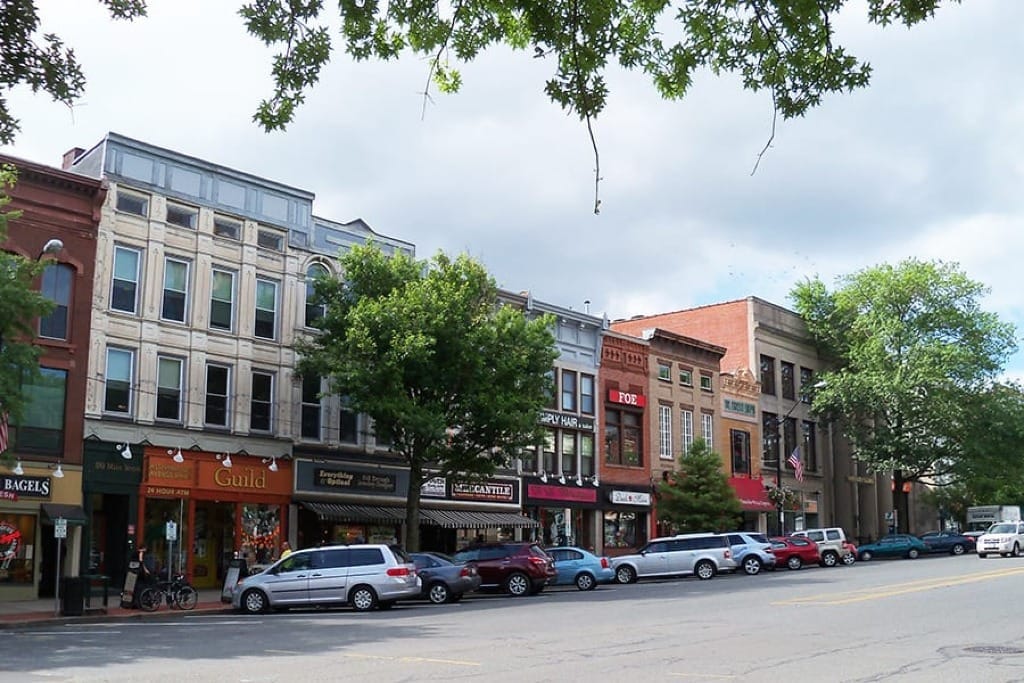Northampton, Mass., Hasn’t Ruled Out Municipal Network
Multi-gigabit speeds coming to large swaths of the city through the arrival of Gateway Fiber.
Karl Bode

Though Northampton, Massachusetts residents still broadly support the construction of a city-owned municipal fiber broadband network, city officials are celebrating the arrival of Gateway Fiber, which will soon be delivering a more affordable fiber option, and more broadband competition, to the traditionally underserved city.
Gateway Fiber recently unveiled plans to deliver multi-gigabit speeds to large swaths of the city. The company, which will finance the entirety of the build, says it’s already invested $3 million in the project so far.
It’s a welcome arrival for a city that’s been frustrated by substandard service provided by regional telecom monopolies, and flirting with the idea of its own municipal broadband network for the better part of the last decade. Some of the city’s efforts on this front have made it easier for providers like Gateway to serve the city of 29,000.
“While we don’t have a final cost estimate for the project, it will be a multi-million-dollar investment that will benefit both residents and small businesses in the Northampton area,” Gateway Fiber representative David Workman told ILSR. “The project is 100 percent funded by Gateway Fiber, and we are also exploring grant opportunities that can be used to address digital equity.”
A ceremonial ribbon cutting ceremony for the project was held in late September. The multi-phase construction (4,000 locations passed in phase one, 5,000 locations passed in phase two) is expected to extend well into 2025.
“Construction of the network will follow a phased approach that will last through 2026,” Workman tells ILSR.
Gateway Fiber intends to provide three tiers of broadband service: symmetrical 300 megabits per second (Mbps) service for $65 a month; symmetrical 600 Mbps service for $71 a month; symmetrical 1 gigabit per second (Gbps) access for $90 a month; and 2 Gbps service for $150 per month.
The company’s pricing will be without long-term contracts, hidden fees, or usage caps. Gateway is also promising local officials they’ll respect user privacy, protect net neutrality, and leverage locals to help staff the company’s customer service efforts. They’re also promising to offer a low-cost option for those left in a lurch after the demise of the Affordable Connectivity Program (ACP).
“Our community's dedication to a forward-thinking digital future, coupled with the robust community dialogue, has made Northampton an exceptionally appealing destination for Gateway’s investment,” Northampton Mayor Gina-Louise Sciarra said of the investment.
Northampton official say city-owned network still isn't out of the questions
Some Northampton residents are frustrated that Northampton hasn’t yet built its own municipal broadband network, estimated to cost somewhere around $30 million.
“I am disappointed that the alternative is Gateway Fiber instead of the community Internet project that is widely supported by Northampton residents,” one local resident told MassLive. “Northampton will end up paying more for service compared to towns like Westfield. That said, I'm very much looking forward to this.”
Alan Wolf, Sciarra’s Chief of Staff, told ILSR that while the city’s past efforts on municipal broadband may have helped inspire and enable Gateway’s fiber investments, the new deployment isn’t a direct public-private partnership (PPP). Gateway was simply lured to the region thanks to ease of market entry courtesy of past city efforts.
“The city of Northampton has not partnered directly with Gateway Fiber,” Wolf said. “Our community had been actively exploring municipal fiber options and had recently completed both a feasibility and a market study to assess interest. The City Council authorized the establishment of a municipal light plant, with over 90 percent of residents supporting the concept in a citywide vote.”
Wolf noted that the city hasn’t ruled out building a citywide municipal network, the full cost of which is estimated to be somewhere around $30 million.
“Municipal fiber remains a valuable consideration for the city, and we are watching with interest as private competition enters the local market to meet our community's needs,” Wolf said.
Northampton already has a smaller municipal fiber network that services key city municipal buildings and community anchor institutions. The city also has access to the Five College Network, a fiber optic network dedicated toward educational purposes that travels through several Massachusetts communities.
Last year, the city released the results of a $70,000 study that explored local broadband access and examined the feasibility of building a citywide municipal broadband network. As Wolf notes, the study recommended the creation of a Municipal Light Plant to help coordinate and streamline future potential efforts to provide essential telecom infrastructure to residents.
The city’s study included a city survey that found that 36 percent of respondents were “dissatisfied” or “very dissatisfied” with their current Internet service, and that 82 percent of residential respondents said they would be “somewhat” or “very” likely to switch to a faster, city-developed network.
Muni broadband: An organic state response to market failure
Like so many parts of the country, Massachusetts has historically struggled with a lack of competition between regional telecom giants, resulting in slow speeds, spotty access, high prices, and substandard customer service.
Data from the American Civil Liberties Union of Massachusetts indicates that roughly 1 million Massachusetts residents, or around 15 percent of the state, lack access to a fixed broadband connection, often due to high costs.
As a result, many Massachusetts municipalities have explored building and operating their own municipal broadband networks.
ILSR data indicates that 74 communities scattered across the state have either built – or are planning to build – community broadband networks in a direct response to ongoing broadband industry market failure.
Hoping to undermine these popular, community-backed efforts, telecom monopolies have been funding groups like Mass Priorities in a bid to mislead state residents about the benefits and potential risks of community broadband networks. This usually involves falsely claiming that such projects are inherently always mismanaged taxpayer boondoggles.
But such networks take on a huge variety of shapes and sizes, from direct municipal builds and cooperatives to public private partnerships. There’s also a growing array of different ways such efforts can be funded, some of which exclude the use of taxpayer funds. Success, like any business proposal, depends heavily on the business plan and local leadership.
For its part, Northampton officials are pleased with the progress the city has made expanding access and isn’t ruling out an expanded municipal build sometime down the road should Gateway Fiber, and other regional providers, fail to live up to their promises.
A version of this article was originally published on the website of the Institute for Local Self Reliance's Community Broadband Networks Initiative on Nov. 19, 2024, and is republished with permission.









Member discussion